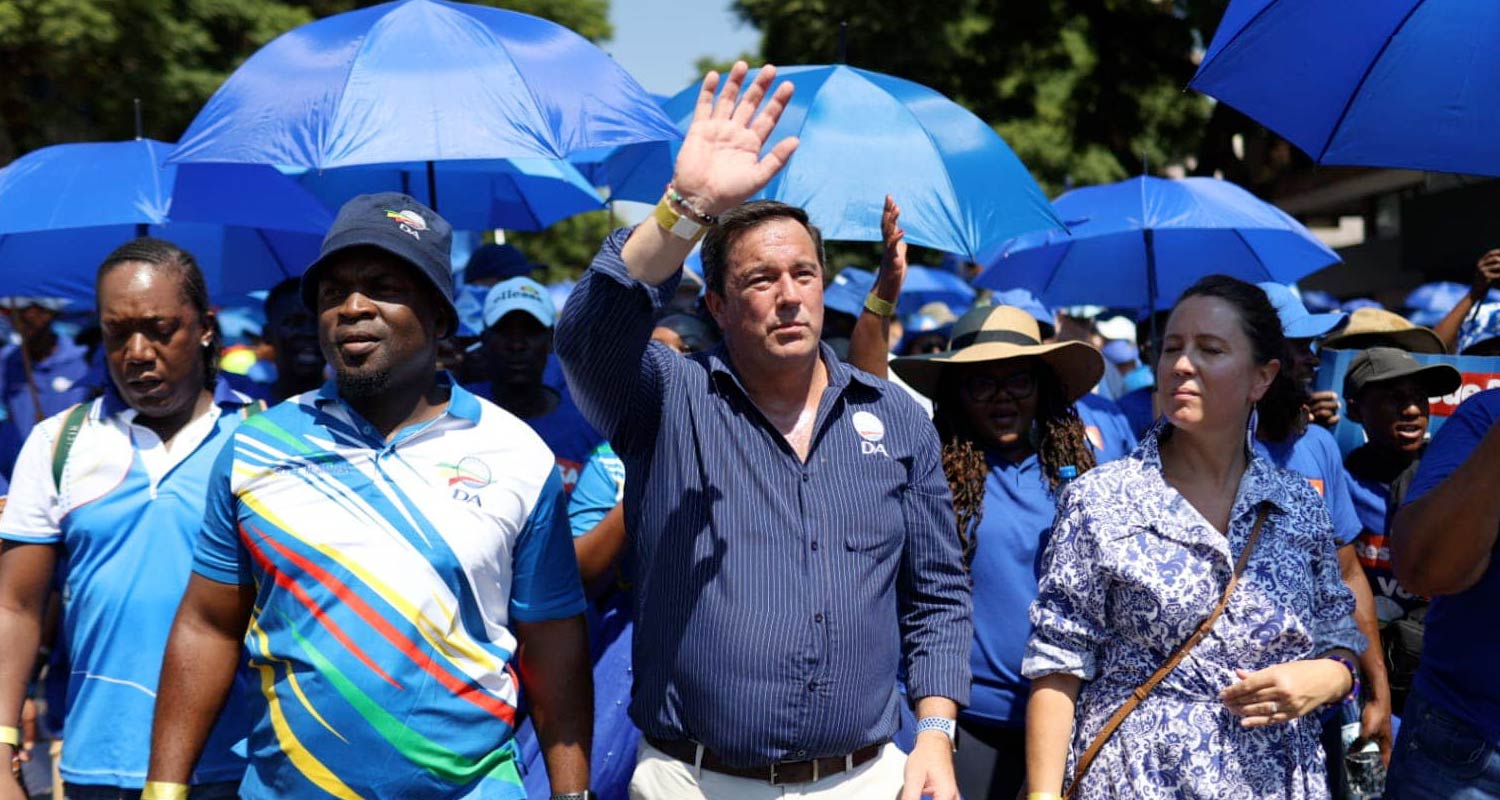
The Democratic Alliance launched its election manifesto at the Union Buildings in Pretoria on Saturday, promising to remedy many of the myriad problems ailing South Africa.
The manifesto document (PDF) covers several areas relevant to the technology industry, and also sets out a plan to end load shedding.
The official opposition in parliament said that if it wins the 2024 election, currently expected to held sometime in late May, it will seek to promote science, technology, engineering and maths (Stem) subjects by identifying pupils with a strong aptitude for these subjects and accommodating them at specialist schools.
The party said it will also ensure all schools have internet access and free digital content, bearing in mind that in 2024 access to the internet for learning is vital and that few state schools are equipped to offer this.
“Quality education is a fundamental cornerstone in preparing children to play a role in the economy, to earn a living and achieve success in life,” the manifesto said.
“The country’s education system grapples with numerous challenges, including weak departmental and school management, poor teaching quality, exceptionally poor time management, unequal access to reliable internet and digital resources, a lack of accountability across the system, limited opportunities for technical and vocational education, and increasing pressure on a small number of quality schools.”
The DA committed to increasing technical and vocational learning by initiating skills training at schools, colleges and universities. The integration of skills training will commence at the secondary school level, with dedicated technical schools and the implementation of technical streams within non-technical schools.
Unemployable
The lack of adequate skills training means many young people either graduating from school or dropping out are unemployable, it said. The DA hopes to remedy this with educational measures.
The party pointed out that the country’s youth are hardest hit, with 70% of young people aged 15-24 unable to find work.
The DA said it will establish clear and effective links between the basic education department and the TVET sector, allowing pupils to move from the school system to colleges and ensuring a well-supported path for technical and vocational education beyond basic schooling.
Read: Load shedding could cost ANC dearly at the polls, minister admits
It will also support high-quality, two-track (work and study) apprenticeship programmes and increase the involvement of companies, together with colleges, in training apprentices. The DA will implement a process for recognising apprenticeship work-based learning accreditation and apprentices’ skills will be acknowledged, ensuring increased access to economic opportunities.
On an issue close to many South Africans’ hearts – load shedding – the DA said it will reduce the high tariffs on imports of renewable energy technologies, such as PV panels and other goods, to make these technologies more accessible; and move away from reliance on Eskom by increasing the use of renewable energy sources.

The party has proposed building local manufacturing capacity for renewable energy technologies without resorting to “protectionist trade practices”, and incentivising the training and development of skills in the renewable energy sector.
It committed to achieving net-zero carbon emissions to reduce the impact of energy generation on the climate by diversifying the energy mix.
The DA has already put some of its energy plans into action in Cape Town, setting aside R53-million for a cash-for-electricity initiative allowing homeowners and businesspeople to sell excess power generated privately to the city.
It has gone to tender to procure up to 300MW of renewable energy from independent power producers, and in 2022 secured a tender for construction of its planned 7MW Atlantis solar PV plant; recently it secured funding to operate a solar PV plant with battery storage in Paardevlei, outside Somerset West.
Read: Load shedding crisis: government ‘should be ashamed’
The DA said: “In 2022, load shedding cost the economy R300-billion and cut GDP projections by 5%. To rescue South Africans from the energy crisis, we need to get the state out of the power generation business, diversify our energy mix and encourage the emergence of private prosumers (individuals who both produce and consume electricity) so that we can bring load shedding to an end.”
The ANC will launch its election manifesto in Durban on Saturday. — © 2024 NewsCentral Media


